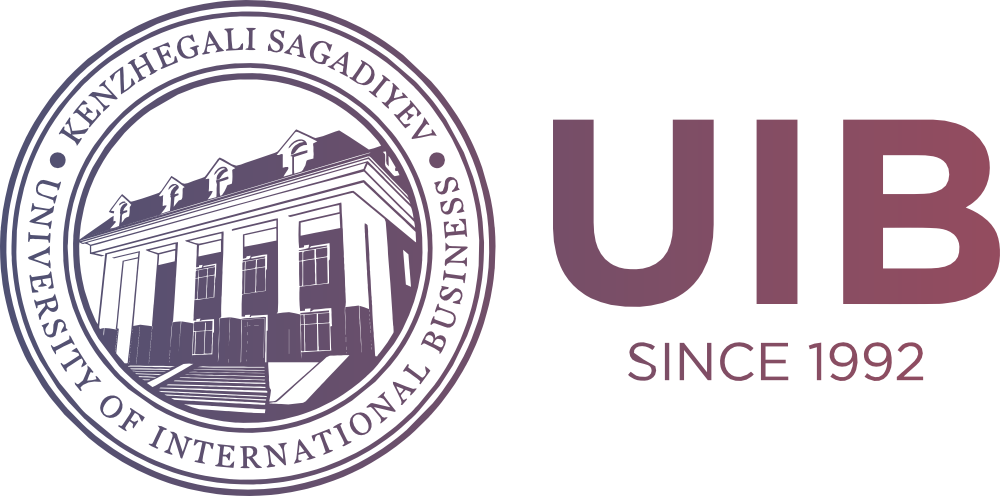Smart Cities and Regional Development in Kazakhstan: Assessment of Spatial Transformation
DOI:
https://doi.org/10.47703/ejebs.v69i3.538Keywords:
Smart City, Digital Economy, Digital Policy, Innovation Capacity, Business Environment, Urban Governance, KazakhstanAbstract
The smart city paradigm has attained international visibility as a multidimensional policy framework for overcoming urbanization problems via the convergence of digital technologies, sustainable infrastructure, innovation systems, and data-driven management. This study aims to evaluate the spatial capacity of Kazakhstan’s regions for implementing smart city initiatives using enterprise-level data from the 2024 World Bank Enterprise Survey (B-READY). The paper uses five dimensions of smart city readiness: digitalization, infrastructure reliability, environmental sustainability, innovation potential, and management efficiency. Based on the application of multifactorial linear regression with regional fixed effects, significant interregional differences have been identified. Thus, the share of electronic payments in Astana reaches 74.5%, while in the northern regions it is only 65.0%. A statistically significant negative relationship has been established between innovation activity and the level of digitalization (β = -18.26, p = 0.023), which may indicate a sectoral segmentation of the digital economy. Cluster analysis, based on standardized values of five smart city readiness indicators, allowed the regions of Kazakhstan to be grouped into three clusters, each of which reflects a different level of institutional, digital and infrastructural readiness to implement the concept of smart cities. The research contributes to the sparse empirical literature on smart city readiness in Central Asia by providing a firm-level, quantitative evaluation of spatial inequalities and institutional drivers. Policy recommendations include targeted infrastructural investments, support for innovation, and administrative reform in underperforming regions. Subsequent research should integrate longitudinal data and citizen-level surveys to better contextualize Kazakhstan's urban digitalization.
Downloads
References
Albino, V., Berardi, U., & Dangelico, R. M. (2015). Smart cities: Definitions, dimensions, performance, and initiatives. Journal of Urban Technology, 22(1), 3–21. https://doi.org/10.1080/10630732.2014.942092 DOI: https://doi.org/10.1080/10630732.2014.942092
Astafyeva, A. G., Kenebayeva, A. S., & Nurmagambetova, A. I. (2025). Cultivating sustainable smart city futures: The power of creative entrepreneurship in Kazakhstan. Central Asian Economic Review, 6, 165-186. https://doi.org/10.52821/2789-4401-2024-6-165-186 DOI: https://doi.org/10.52821/2789-4401-2024-6-165-186
Bektemyssova, G., Moldagulova, A., Shaikemelov, G., Omarov, S., & Nuralykyzy, S. (2024). Research on spatial aggregation patterns of urban population in Almaty City based on heat map. CoDIT 2024, 2194-2198. https://doi.org/10.1109/CoDIT62066.2024.10708175 DOI: https://doi.org/10.1109/CoDIT62066.2024.10708175
Caragliu, A., Del Bo, C., & Nijkamp, P. (2011). Smart cities in Europe. Journal of Urban Technology, 18(2), 65–82. https://doi.org/10.1080/10630732.2011.601117 DOI: https://doi.org/10.1080/10630732.2011.601117
Cohen, B. (2015). The 3 generations of smart cities. Fast Company. Retrieved June 30, 2025 from https://www.fastcompany.com/3047795/the-3-generations-of-smart-cities
Giffinger, R., & Gudrun, H. (2010). Smart cities ranking: An effective instrument for the positioning of cities? ACE: Architecture, City and Environment, 4(12), 7–25. https://doi.org/10.5821/ctv.7571 DOI: https://doi.org/10.5821/ace.v4i12.2483
Kireyeva, A., Satpayeva, Z., & Urdabayev, M. (2022). Analysis of the digital readiness and the level of the ICT development in Kazakhstan’s regions. Economy of Region, 18(2), 464-47. https://doi.org/10.17059/ekon.reg.2022-2-12 DOI: https://doi.org/10.17059/ekon.reg.2022-2-12
Kulbaeva, A., Nakhipbekova, S., Mergenbayeva, A., Akhmetova, K., & Kulbaeva, M. (2023). Improvement of the efficiency of urban management within the concepts of smart city and sustainable development. WSEAS Transactions on Business and Economics, 20, 2692-2699. https://doi.org/10.37394/23207.2023.20.229 DOI: https://doi.org/10.37394/23207.2023.20.229
Lee, J. H., Phaal, R., & Lee, S. H. (2013). An integrated service-device-technology roadmap for smart city development. Technological Forecasting and Social Change, 80(2), 286–306. https://doi.org/10.1016/J.TECHFORE.2012.09.020 DOI: https://doi.org/10.1016/j.techfore.2012.09.020
Makhatov, N. B., & Alzhanov, A. (2022). Human capital development in smart cities of Kazakhstan: Networks and live laboratories. Central Asian Economic Review, 3, 100-112. https://doi.org/10.52821/2789-4401-2022-3-100-112 DOI: https://doi.org/10.52821/2789-4401-2022-3-100-112
Mendybayev, B., Burbayeva, P., Otar, E., & Zhupankhan, A. (2022). Balancing smart city stakeholders’ expectations: Case of Kazakhstani cities. Public Administration and Civil Service, 1 (80), 58-66. https://doi.org/10.52123/1994-2370-2022-579 DOI: https://doi.org/10.52123/1994-2370-2022-579
Nam, T., & Pardo, T. A. (2011). Smart city as urban innovation. Proceedings of the 5th International Conference on Theory and Practice of Electronic Governance, 185–194. https://doi.org/10.1109/HICSS.2011.123 DOI: https://doi.org/10.1145/2072069.2072100
Neirotti, P., De Marco, A., Cagliano, A. C., Mangano, G., & Scorrano, F. (2014). Current trends in Smart City initiatives: Some stylised facts. Cities, 38, 25–36. https://doi.org/10.1016/j.cities.2013.12.010 DOI: https://doi.org/10.1016/j.cities.2013.12.010
Nurbatsin, A., Kireyeva, A., Gamidullaeva, L., & Abdykadyr, T. (2023). Spatial analysis and technological influences on smart city development in Kazakhstan. Journal of Infrastructure, Policy and Development, 8(2), 3012. https://doi.org/10.24294/jipd.v8i2.3012 DOI: https://doi.org/10.24294/jipd.v8i2.3012
Turgel, I., Bozhko, L., Ulyanova, E., & Khabdullin, A. (2019). Implementation of the smart city technology for environmental protection management of cities. Environmental and Climate Technologies, 23(1), 148–165. https://doi.org/10.2478/rtuect-2019-0061 DOI: https://doi.org/10.2478/rtuect-2019-0061
Urdabaev, M. T., & Utkelbay, R. (2021). SWOT analysis of smart city projects in capital cities of Russia and Kazakhstan. R-Economy, 7(4), 235-243. https://doi.org/10.15826/recon.2021.7.4.021 DOI: https://doi.org/10.15826/recon.2021.7.4.021
Urdabayev, M., Kireyeva, A., Vasa, L., Digel, I., Nurgaliyeva, K., & Nurbatsin, A. (2024). Discovering smart cities’ potential in Kazakhstan: A cluster analysis. PLOS ONE, 19(4). https://doi.org/10.1371/journal.pone.0296765 DOI: https://doi.org/10.1371/journal.pone.0296765
Yigitcanlar, T., Kamruzzaman, M., & Teriman, S. (2018). Smart cities and the quality of life: Towards sustainable urban futures. Journal of Urban Technology, 25(1), 3–20.
How to Cite
Downloads
Published
Issue
Section
License

This work is licensed under a Creative Commons Attribution 4.0 International License.
Authors retain copyright and grant the journal right of first publication with the work simultaneously licensed under a Creative Commons Attribution (CC-BY) 4.0 License that allows others to share the work with an acknowledgment of the work’s authorship and initial publication in this journal.



